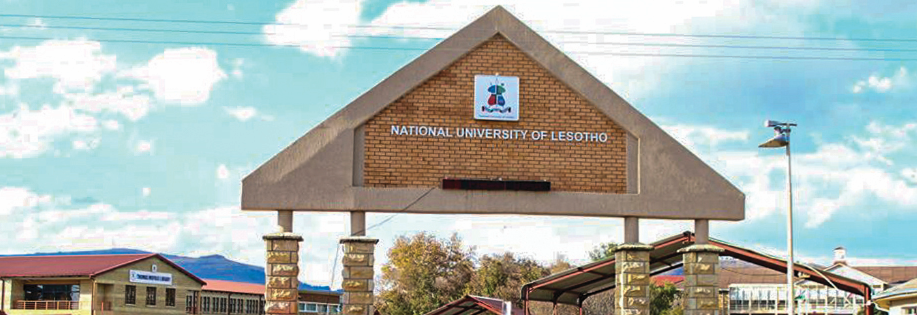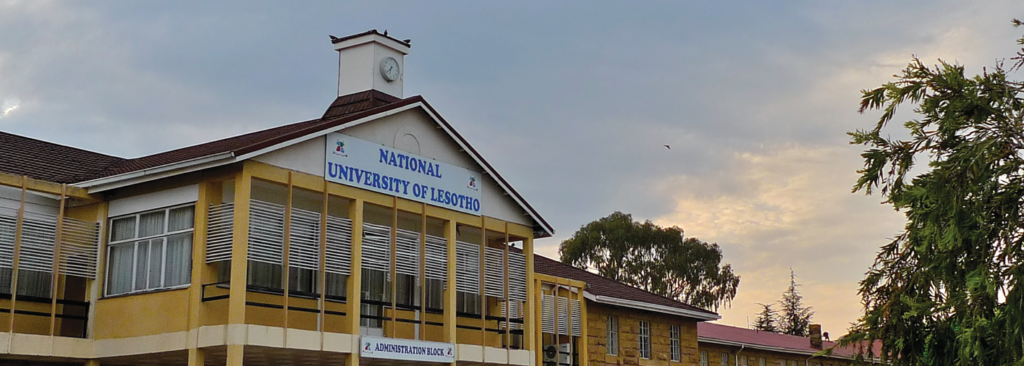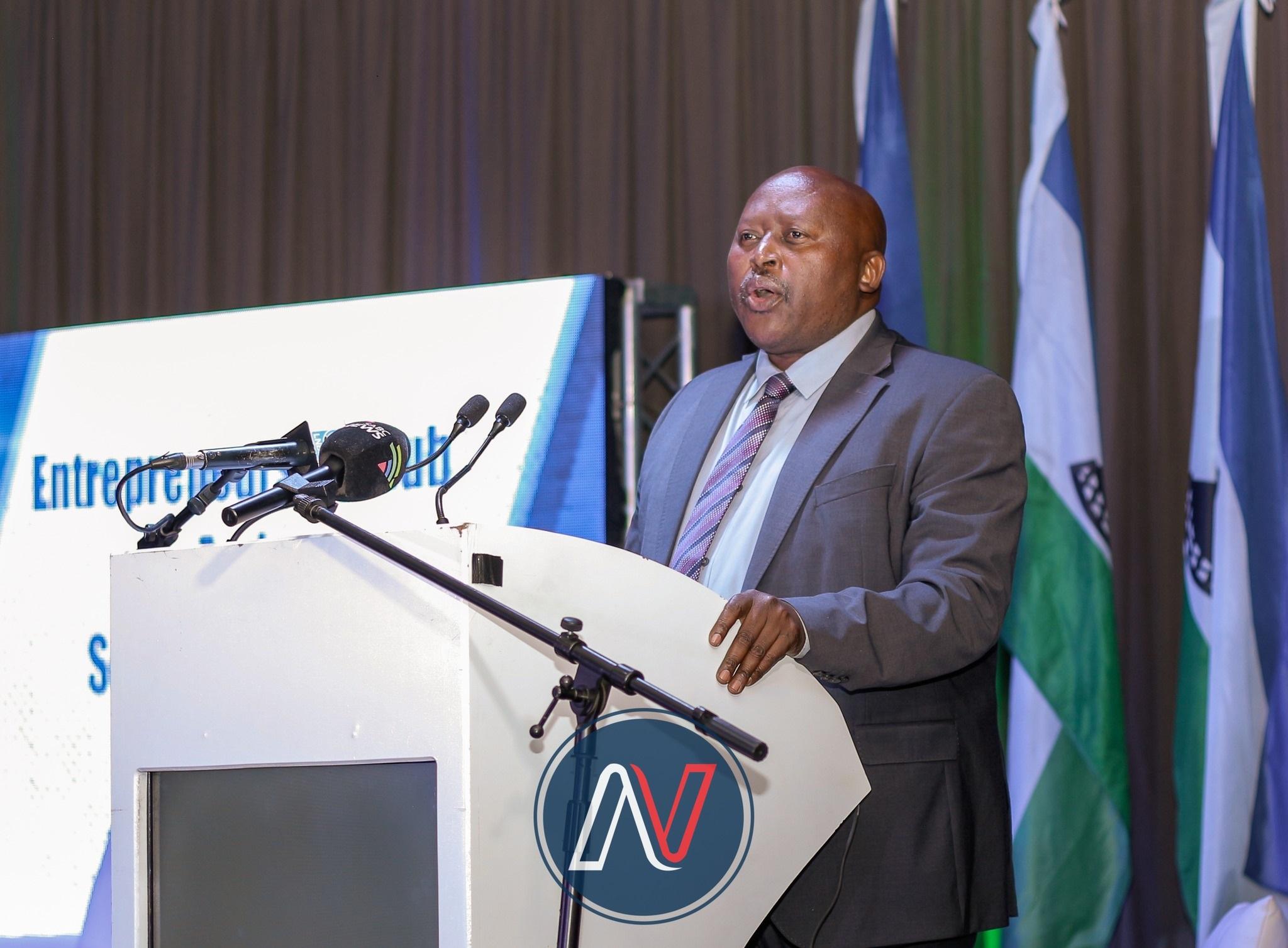Staff Reporter
The National University of Lesotho (NUL) Innovation Hub is under investigation by the Directorate on Criminal and Economic Offences (DCEO) for possible mismanagement of funds, Newsday can reveal.
At the heart of the probe is possible mismanagement of a M1.9 million funding, which the hub received in 2023 from the Lesotho Competitiveness and Financial Inclusion (CAFI) project to incubate entrepreneurs or business startups.
Along with several Enterprise Support Organisations (ESOs) in the country, the hub received US$100 000 (approximately M1.9 million) under the CAFI’s initiative to improve the quality and breadth of integrated start-up business support services and provide better early-stage financing opportunities.
A significant portion, 70 percent of the allocated funds was designated for the direct benefit of startups.
Each of the first ten startups selected for incubation by the NUL Innovation Hub would receive $7 000 (approximately M133 000), with the remaining $30 000 (about M570 000) to be used by the hub to support the entrepreneurial ecosystem and provide valuable assistance to emerging entrepreneurs.
However, sources who spoke to Newsday on condition of anonymity revealed that the hub has allegedly diverted the CAFI funds for purposes unrelated to the designated projects.
The hub has allegedly instead diverted the CAFI funds for other uses. They were supposed to fund specific projects incubated under CAFI, but are believed to have used them for other projects; a development which has not gone down well with the powers that be at CAFI.
They hub is also being probed for using part of the funding to remunerate its staff members instead of bringing in external experts to help with the training of CAFI beneficiary projects.
NUL’s Communications and Marketing Director, ‘Mamosa Moteetee late last night professed ignorance of the investigation, but promised to find out about it as soon as possible.
DCEO spokesperson, ‘Matlhokomelo Senoko yesterday confirmed that they were investigating the hub but would not divulge more details as the investigation is currently underway.
Earlier this year, Newsday broke the news about accusations of exploitation and nepotism against the hub by some of its beneficiaries.
The allegations suggested that those at the helm were using the incubation process for personal gain. However, the NUL Innovations Committee (NULIC) has vehemently denied these allegations.
NULIC is a voluntary committee that is made up of staff, students, and individuals outside of NUL who are responsible for overseeing the day-to-day operations of the Innovation Hub and NUL Research and Innovation agenda.
The committee is headed by a coordinator who reports to the Office of Pro-Vice-Chancellor.
Whistleblowers, who spoke exclusively to Newsday recently on condition of anonymity, painted a grim picture of a hub where the benefits of incubation are allegedly reserved for businesses with close ties to the hub’s decision-makers.
According to one source, the Hub is a closed loop of privilege. The heart of the accusations revolves around the alleged unequal distribution of resources during the incubation process.
Startups unrelated to the hub’s management or their associates, the sources claim, receive little to no financial assistance, crippling their chances of success.
The CAFI project aims to achieve various key outputs, including increasing the number of women-owned and youth-owned enterprises benefiting from private sector initiatives, enhancing the financing available to women-owned enterprises, and driving growth in both revenue and employment for these businesses.
Part of the project’s subcomponents aim to strengthen the country’s emerging entrepreneurial ecosystem and to facilitate early-stage financing for innovative small to medium enterprises, particularly those led by youth and women.
This involves establishing an Entrepreneurship Hub and Seed Financing Facility to improve the quality and breadth of integrated start-up business support services, ultimately providing better early-stage financing opportunities. One of the primary goals is the incubation of up to 500 start-ups and innovative SMEs over five years.
The NUL Innovation Hub, a department of NUL, plays a pivotal role in incubating and accelerating businesses initiated by students.
According to information on the hub’s website, the aim is to guide these businesses from their nascent stages to becoming professionally run entities capable of mass production.
Designed as an interface between academia and business, the hub provides incubated businesses with essential resources, including free space, electricity, water, internet, and other amenities to facilitate their focus on mastering production during the crucial early stages of development.

Your Trusted Source for News and Insights in Lesotho!
At Newsday Media, we are passionate about delivering accurate, timely, and engaging news and multimedia content to our diverse audience. Founded with the vision of revolutionizing the media landscape in Lesotho, we have grown into a leading hybrid media company that blends traditional journalism with innovative digital platforms.












